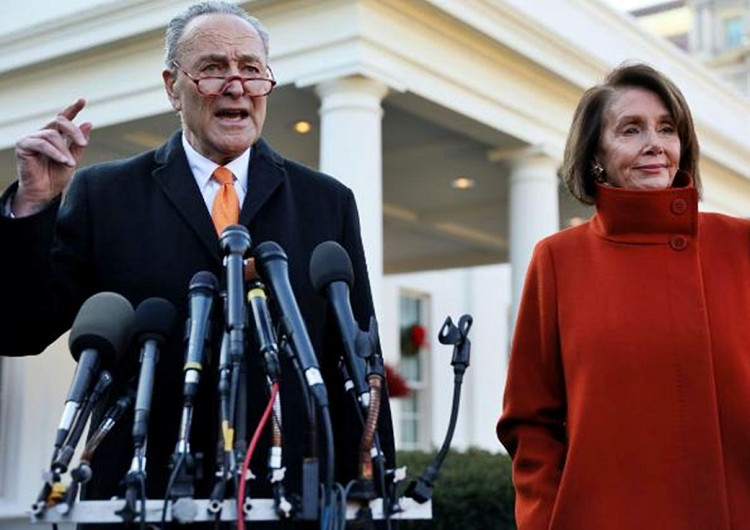Democrats got much of what they wanted in the historic $2 trillion coronavirus economic relief bill, which will put cash into the pockets of ordinary Americans and protect them against layoffs during this time of economic crisis triggered by the COVID-19 pandemic sweeping the United States.
Senate Democrats and Republicans are now expected to approve the bill later Wednesday after two failed votes on Sunday and Monday. After approval by the Senate, the relief bill will go to the House of Representatives controlled by the Democrats. The Senate and House still need to pass the legislation before sending it to President Donald Trump for his signature. Pundits say House Democrats might push for some changes but won't likely alter any of the major points in the Senate version.
"At last we have a deal," tweeted Senate Majority Leader Mitch McConnell (R-KY) at 1:37 a.m. ET from the floor of the Senate. "After days of intense discussions, the Senate has reached a bipartisan agreement on a historic relief package for this pandemic."
McConnell said the bill will rush financial assistance to Americans through direct checks to households. It will also offer enhanced unemployment insurance; provide hundreds of billions of dollars in emergency loans to small businesses, and provide more resources to hospitals and secure much needed medical equipment.
The Senate hasn't released the final terms of the deal. But an earlier draft of the bill seen by media Tuesday provides for:
* Cash payments of up to $1,200 for individuals.
* $2,400 for married couples and $500 per child. This amount will be reduced if an individual makes more than $75,000, or a couple makes more than $150,000.
* A one-time $3,000 payment for families.
* A $350 billion fund for small businesses to mitigate layoffs and support payroll.
* Allocate $150 billion to states and localities battling the pandemic, and starved of now-delayed tax revenue.
* $130 billion earmarked for hospitals
* Allow the U.S. Federal Reserve to leverage up to $4 trillion of liquidity to support the economy
McConnell said the bill will "stabilize key national industries" to prevent as many layoffs as possible. U.S. passenger and cargo airlines want $58 billion in government relief to help manage the blow to their revenues they've said are worse than 9/11.
Senate Minority Leader Chuck Schumer (D-NY) described the moment as not one of celebration, "but one of necessity." He said the bill as "unemployment compensation on steroids," which would cover every American for four months.
Schumer promised oversight on the loans the bill will provide to businesses. He said "every loan document will be made public very quickly" to make sure those loans are fair. He also revealed an inspector general and an oversight board will oversee these business loans. Democrats railed against the previous GOP proposal that left the fate of the $500 billion funds for businesses at the hands of treasury secretary Steve Mnuchin, a Trump sycophant.
Trump's 11 hotels are in dire financial shape due to the massive lack of customers and Democrats fear Mnuchin might favor Trump in the handing out of loans. The deal also includes a provision, secured by Schumer, prohibiting businesses controlled by the president, vice president, members of Congress and heads of executive departments from receiving loans or investments from Treasury programs.






